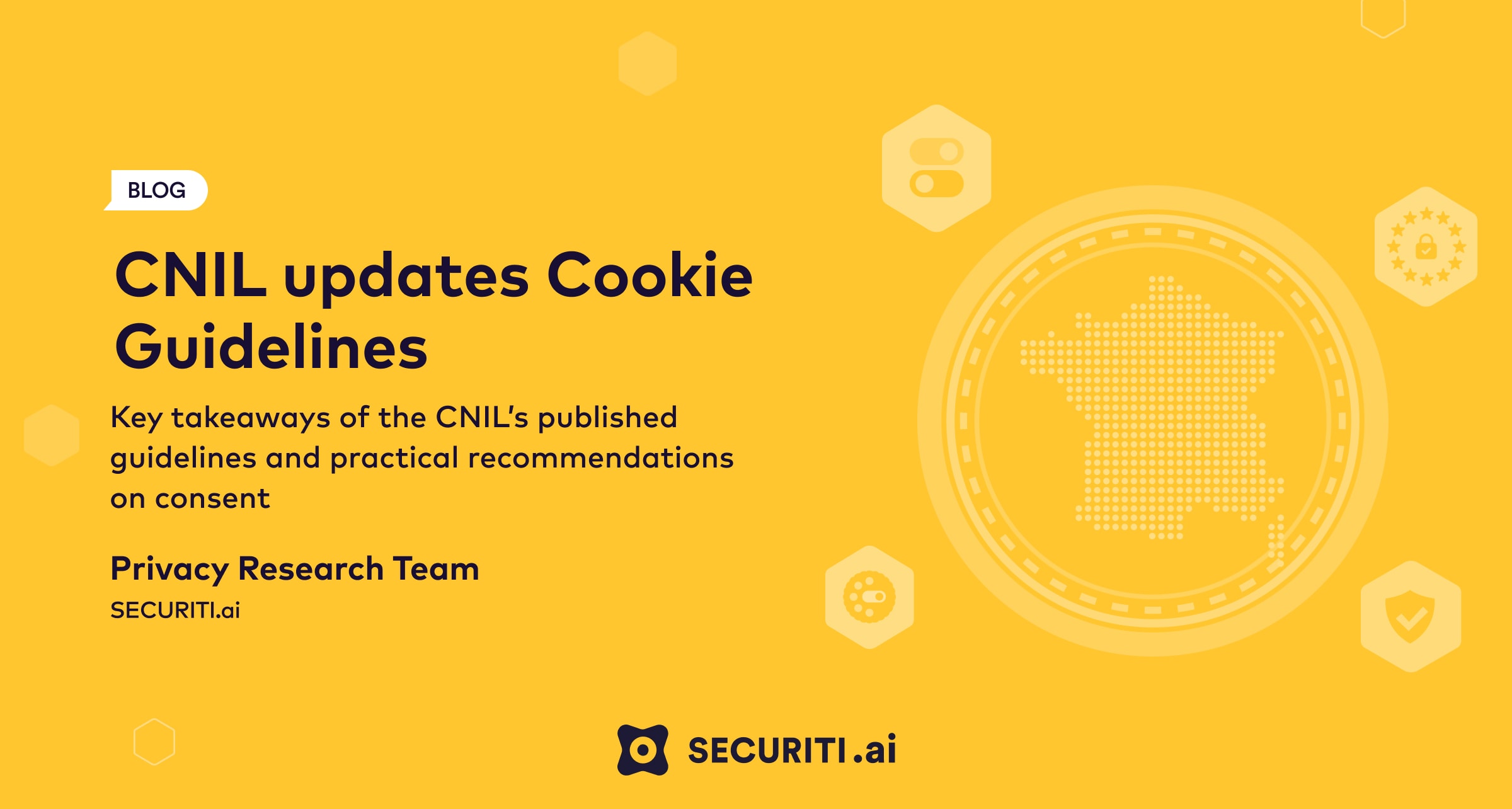Mobile App Privacy: Key CNIL Guidelines For Developers

Table of Contents
Data Minimization and Purpose Limitation
Collect only the data strictly necessary for your app's functionality and clearly define the purpose of data collection. Avoid collecting excessive or irrelevant information. The CNIL emphasizes the importance of data minimization – only collecting what's absolutely essential. Over-collection can lead to violations and damage user trust.
- Clearly state in your privacy policy what data is collected and why. Be specific; avoid vague language. This transparency is key to obtaining informed consent.
- Implement technical measures to prevent the collection of unnecessary data. Use appropriate programming techniques to limit data capture to the defined purpose.
- Regularly review your data collection practices to ensure they remain justified. Your app's needs may change over time, so periodic review is crucial for ongoing compliance.
- Consider using privacy-enhancing technologies to minimize data collection. Techniques like differential privacy can help protect user data while still allowing for data analysis.
Transparency and Informed Consent
Be transparent with users about how their data is collected, used, and shared. Obtain explicit and informed consent before processing any personal data. This is a cornerstone of responsible mobile app privacy.
- Provide a clear and concise privacy policy, easily accessible within the app. Don't bury it deep within the settings; make it readily available.
- Use plain language, avoiding technical jargon. Your privacy policy should be understandable to the average user, not just legal professionals.
- Obtain unambiguous consent through clear opt-in mechanisms. Avoid pre-checked boxes or implied consent. Users must actively agree to data processing.
- Allow users to withdraw their consent at any time. This ensures user control over their data and is a fundamental right under GDPR and CNIL guidelines.
- Ensure that consent is freely given, specific, informed, and unambiguous (GDPR compliant). This aligns with the principles of the General Data Protection Regulation (GDPR), which significantly impacts CNIL guidelines.
Data Security and Protection
Implement robust security measures to protect user data against unauthorized access, loss, or alteration. Comply with relevant security standards and best practices. Security breaches can have severe consequences, both legally and reputationally.
- Use encryption to protect data both in transit and at rest. This protects data as it's transmitted and stored on your servers.
- Regularly update software and security protocols. Outdated systems are vulnerable; keeping your app and servers up-to-date is essential.
- Implement access control measures to restrict access to sensitive data. Limit access to data based on the principle of least privilege.
- Conduct regular security audits and penetration testing. Proactive security measures can identify and address vulnerabilities before they are exploited.
- Report any data breaches to the CNIL without delay. Failure to report a breach is a serious offense.
Specific CNIL Guidelines for Location Data
The CNIL provides specific guidance on the collection and use of location data, requiring additional transparency and justification. Location data is particularly sensitive, requiring extra care.
- Clearly explain why location data is needed. Don't just say "for functionality"; specify exactly how the location data is used to improve the user experience.
- Offer users granular control over location sharing settings. Allow users to choose the level of precision and frequency of location sharing.
- Minimize the precision of location data whenever possible. Use only the necessary level of accuracy; avoid collecting highly precise location data if a lower precision will suffice.
- Comply with CNIL recommendations regarding the storage and processing of location data. Consult the CNIL website for their specific recommendations on handling this sensitive data type.
Data Retention and Deletion
Establish clear data retention policies, deleting data when it is no longer needed for the specified purpose. Data minimization extends to retention; only keep data for as long as necessary.
- Define specific retention periods for different types of data. Different data types may have different legal or operational requirements.
- Implement procedures for securely deleting data at the end of its lifecycle. Ensure data is deleted completely and irretrievably.
- Ensure compliance with legal obligations regarding data retention. There may be legal requirements for retaining certain types of data for specific periods.
Conclusion
Developing mobile apps that respect user privacy is crucial for success. Adhering to CNIL guidelines on mobile app privacy is not just a legal requirement; it's a way to build trust and loyalty with your users. By implementing the strategies outlined above – focusing on data minimization, transparency, informed consent, robust security, and proper data retention – you can create a secure and privacy-respecting mobile app experience. Remember to regularly review and update your privacy practices to stay compliant with evolving regulations. Ensure your mobile app privacy practices align with the latest CNIL recommendations to avoid potential penalties and foster a positive user experience. Don’t hesitate to consult the CNIL website for the most up-to-date information on mobile application privacy.

Featured Posts
-
 Ubisoft Entertainment Decryptage Du Document Amf Cp 2025 E1029768
Apr 30, 2025
Ubisoft Entertainment Decryptage Du Document Amf Cp 2025 E1029768
Apr 30, 2025 -
 Trumps Comments On Us Reliance Impact On The Canadian Election
Apr 30, 2025
Trumps Comments On Us Reliance Impact On The Canadian Election
Apr 30, 2025 -
 Schneider Electrics Ai Ecosystem A Collaborative Approach To Ai Adoption
Apr 30, 2025
Schneider Electrics Ai Ecosystem A Collaborative Approach To Ai Adoption
Apr 30, 2025 -
 Analyzing Ru Pauls Drag Race Season 17 Episode 9 The Design Challenge
Apr 30, 2025
Analyzing Ru Pauls Drag Race Season 17 Episode 9 The Design Challenge
Apr 30, 2025 -
 Tramp I Zelenskiy Rasstoyanie Mezhdu Nimi I Ego Znachenie
Apr 30, 2025
Tramp I Zelenskiy Rasstoyanie Mezhdu Nimi I Ego Znachenie
Apr 30, 2025
Latest Posts
-
 Mstqbl Alelaqat Alamrykyt Alkndyt Ray Tramb Waldwr Alamryky Alhasm
Apr 30, 2025
Mstqbl Alelaqat Alamrykyt Alkndyt Ray Tramb Waldwr Alamryky Alhasm
Apr 30, 2025 -
 Us Canada Relations In The Spotlight Trumps Influence On The Canadian Vote
Apr 30, 2025
Us Canada Relations In The Spotlight Trumps Influence On The Canadian Vote
Apr 30, 2025 -
 Trump And Canada Understanding The 51st State Controversy
Apr 30, 2025
Trump And Canada Understanding The 51st State Controversy
Apr 30, 2025 -
 The Canadian Election And Us Relations Trumps Perspective
Apr 30, 2025
The Canadian Election And Us Relations Trumps Perspective
Apr 30, 2025 -
 Decoding Trumps 51st State Remarks On Canada Fact Or Fiction
Apr 30, 2025
Decoding Trumps 51st State Remarks On Canada Fact Or Fiction
Apr 30, 2025
